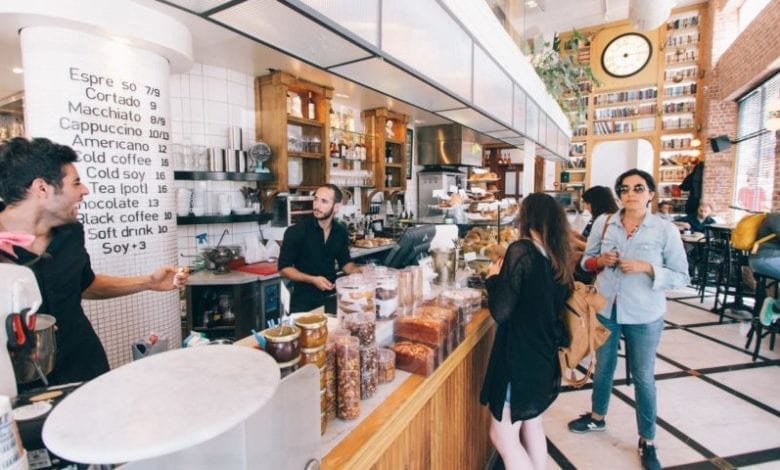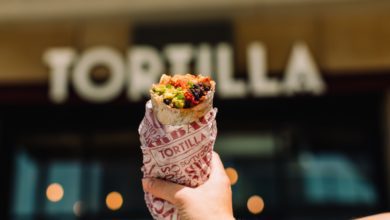Shaping your proposition and brand with your customer at its heart

Restaurants around the UK, many of which have failed to put their customers at the heart of their proposition, are closing daily. Remaining operators now find themselves asking how they can achieve this. There are many tools that F&B businesses can implement in creating a true customer-first approach. Below are three key learnings: “Be Adaptable”, “Tailor Your Offer”, and “Discover Then Deliver”, with examples of successes and failures in each. Successful brands have gone beyond simply offering great customer service, and have truly thought about what customers want, whilst those that have failed can, at least in part, attribute their demise to a loss of focus in this area.
Be adaptable
Both Zizzi and Pret have demonstrated the ability to adapt and develop their proposition in accordance with changing consumer trends and demands. This has helped keep them relevant in a time when irrelevance has led to the downfall of so many restaurant brands.
An example of successful adaptation by both brands has been in their response to the growing consumer demand (including from meat eaters) for vegetarian and vegan food. Both Zizzi and Pret have been considered, committed and comprehensive in their approach, with their changes being much more than a token nod. Zizzi launched an extensive 15 item vegan menu, alongside their main menu and Pret went one step further by launching a dedicated product range, Veggie Pret, which contains recipes trialled in a vegetarian-only concept store in London. This action not only says ‘we’re listening’ to existing customers, but also demonstrates a wider market awareness, which may attract new customers.
By contrast, some well-known F&B chains, such as Byron and Jamie’s Italian, have failed to do this. Byron originated as the first ‘trendy’ burger chain in London, but quickly became irrelevant as many new, more ‘exciting’ brands entered the market which were focusing on the consumer trend of indulgent, Instagrammable burgers. Byron’s inability to identify opportunities and threats, and to react, adapt, and tweak the proposition accordingly, was ultimately a contributing factor in some store closures. Similarly, Jamie’s Italian was too slow to react to the shift towards healthy eating, which was in fact being pioneered by its founder. This meant there was a mismatch in the proposition, with the restaurant menu no longer reflecting its namesake’s public persona or wider consumer trends.
Tailor your offer
‘Personalisation’ is a familiar buzz word when it comes to putting the customer at the heart of things, but it is often realised as a gimmicky add-on to the standard business model, which is normally far larger in scale. However, there are a number of companies which have structured their business model and proposition around a bespoke approach, which has resulted in brands which are perceived as more authentically customer-centric.
Vita Mojo, a healthy quick serve restaurant concept in London, understands that customers’ diets have become increasingly complicated over recent years (from allergies and intolerances, to a growing focus on macros and protein intake to fuel training). Their concept allows you to build your meal, using in-store tablets or the website to increase or reduce quantities of ingredients from standard meals. There is clearly-displayed calorie and nutritional information, allowing customers to create a meal that is right for them (e.g. low carb, high protein, etc). They are endeavouring to take this to the next level with DNA tailored meals. While branded by some as ‘psedudo-science’ no one can deny that that this concept is the ultimate in personalisation.
Another company which tailors its product to the customer is the Laines pub group, which consists of 54 independently branded pubs. Laines have tailored each pub to the local surroundings and catchment demographic. For example, the pub in Honor Oak Park is a community style pub, reflecting the highly residential neighbourhood, whereas a pub in Brighton has live music and the quirky interior reflects the alternative local style.
On the other hand, one F&B company that has failed to tailor its proposition accordingly is Polpo. Polpo restaurants enjoyed great success in the London market, but expansion into Bristol and Exeter resulted in closures less than a year after opening. Polpo failed to tailor its regional offer to the local demographic or the site location, for example, the unchanged proposition at the Exeter location meant the site was highly dependent on evening trade, in an area where footfall was concentrated much more around the breakfast and lunchtime day parts.
Discover then deliver
Many companies will claim to listen to their customers – but how many directly ask them questions, beyond generic customer service feedback? One company that discovers what its customers want and then delivers based upon this is Wagamama. In 2017, Wagamama launched Noodle Lab, a test restaurant in Soho where customers can try exclusive new dishes. After every meal, customers are asked to leave honest feedback, with popular dishes then being rolled out nationwide. This is a win-win approach for both Wagamama and the customer. After all, how can you put the customer at the heart, if you don’t even know what they want?
Another company that is aiming to understand what its customer like and then deliver against this is Greggs, which launched the UKs first convenience food retailer mobile payment and loyalty app. Customers pay via the app, similar to Apple Pay, which tracks every purchase. To make the rewards relevant, they are tailored towards each customer favourite products.
Being customer-centric means putting customers at the heart of everything you do, so that it is ingrained into your brand’s DNA. Successful companies have either built their brand with the customer in mind, or constantly evolved and adapted their proposition in order to meet the changing demands of customers. By being adaptable, tailoring the offer, and asking and listening to customer feedback, F&B brands are much more likely to have a concept that customers find appealing, leading to far greater chances of success.
By Ailis Topley, senior analyst at business management consultant firm, Pragma
















